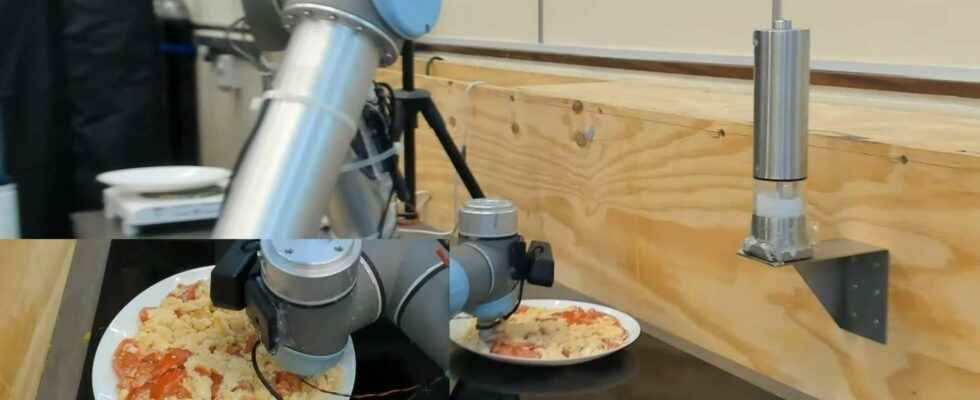British researchers have improved their kitchen robot by adding a probe to assess the salt content of the dish. By tasting in two stages, the robot is much more precise than other systems and could in the future adapt its dishes to everyone’s taste.
You will also be interested
[EN VIDÉO] Discover the curious ingredients of the kitchen of 2050 What will we eat in 2050? Certainly new ingredients, which are already being studied today. We will therefore have to adapt to new textures and other flavors. Expect surprises. To see this evening on Planète + at 8:55 p.m. in an astonishing episode of the Rêver le futur series.
Current food processors are very simple appliances, which only cook ingredients that have already been prepared. In the future, the robots will be able to create a dish by preparing and measuring out the ingredients themselves. In addition to a number of manipulations physical complex, the robots will have to learn an essential task in the kitchen: to taste the dish.
In an article published in the journal Frontiers in Robotics & AI, researchers from the University of Cambridge are working on this point. They had already created a robot capable of cook omelets. They added to it the ability to assess the salt content of a dish using a conductivity. The robot evaluated a dish of scrambled eggs with tomatoes. The first step was to test the dish by placing the probe in different places in order to “taste” all the different elements. This differs from existing systems that test homogenized samples.
Watch this robot test the saltiness of a dish of scrambled eggs and tomatoes at different stages of ‘chewing’. © University of Cambridge
A robot that “chews” food
However, when we chew food, the feeling of salinity varied. The researchers therefore passed the dish through a blender to simulate chewing, then the robot again used the probe. They compared different dishes with different salt content, and at three stages of chewing.
This robot had the best results when testing two stages of the dish: before and after going through the blender. Its F1 classification score went from 0.55 for a homogenized sample to 0.93 when testing in two stages. Their prototype is currently only at the proof of concept stage. The researchers hope in the future to develop a robot cook capable of adapting the dish to the palate of each one.
Support your independent scientific media: discover our subscription formulas!
4 good reasons to subscribe to Futura on Patreon:
- A site without any advertising from 3.29 euros per month.
- It is without commitment.
- Access to priority content, in preview, just for you.
- You support our business in the best possible way. A real motivation for us!
Interested in what you just read?

